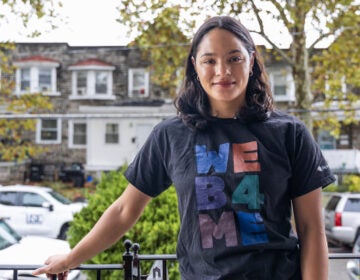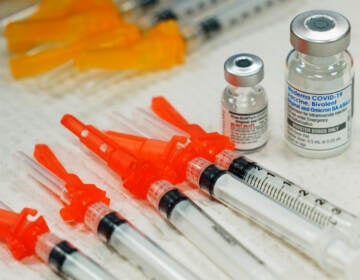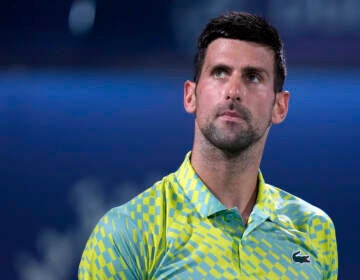Pa. coronavirus update: State ending ban on utility shut-offs; Philly vaccine clinics for immigrants
The moratorium, almost a year old, was seen as a necessary way of keeping people hard-hit by the pandemic from going without basic utilities, like gas, water, and electricity.
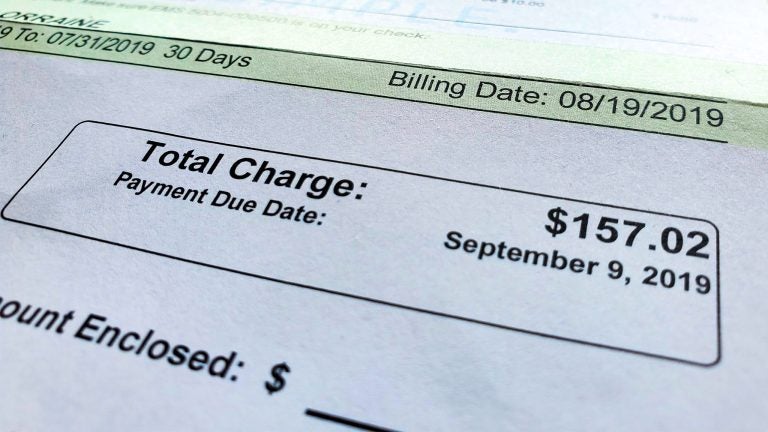
(Mark Henninger for Billy Penn)
Updated 5:23 p.m.
Ask us about COVID-19: What questions do you have about the coronavirus and vaccines?
Pa. is ending its moratorium on utility shut-offs
On Thursday, Pennsylvania’s Public Utility Commission confirmed that its long-standing ban on shutting off utilities for non-paying customers is ending on April 1.
The moratorium, now almost a year old, was seen as a necessary way of keeping people hard-hit by the pandemic from going without basic utilities, like gas, water, and electricity.
With new payments coming due next month, the past-due bills that many people have racked up also aren’t going away. Around a million people statewide had outstanding payments in January.
The PUC says as it begins requiring payments again, it’s trying to help people keep the lights on by offering several newly approved plans for residential and small business customers.
Broadly, those plans extend the allowed payment periods for lower-income people. For instance, a family of three that makes less than 250% of the federal poverty level — in their case that would be less than $54,900 — will have a minimum of five years to pay off their bills. The customer can ask to pay more quickly, and the utility can also grant extensions.
For people who make slightly more, between 250% and 300% of the federal poverty level, utilities have to offer a minimum payment length of two years. And people making above 300% of the poverty level for their category are given at least one year.
The PUC also says small businesses will have a minimum of 18 months to pay off their debts.
Technically, the utility commission already ended its payment moratorium back in November. But it shut off few utilities at the time, and the period of required payment was brief before the commonwealth’s existing ban on shutting off utilities in the winter kicked in.
That ban, required by state law, lasts from December to the end of March.
Philly launches series of clinics to vaccinate immigrants
A group of immigrant-serving nonprofit organizations in Philadelphia will kick off a series of targeted vaccination clinics on Friday. The event is aimed at city residents who are otherwise unable to sign up for vaccines due to language barriers.
More than 200 people are signed up to receive their first dose of the coronavirus vaccine next to the Nationalities Service Center offices on Arch Street between 9 a.m. and 1 p.m.
All vaccinations are by appointment only, and only immigrant residents who fall into eligible categories can sign up.
The clinic, the first of three currently scheduled, will cater primarily to residents who speak Spanish, Indonesian, Arabic, or Chinese.
The Philadelphia Department of Health reached out to community organizations in recent weeks, and connected the host provider, Nationalities Service Center, to Sunray Pharmacy, which is providing the doses, said Steven Larín, deputy director of NSC.
The organizations SEAMAAC, New Sanctuary Movement, Africom, HIAS, Juntos, Asian Americans United, and others also partnered to do outreach for the clinic to their community members.
Black Doctors Consortium to give out J&J vaccine
Philadelphia’s Black Doctors COVID-19 Consortium, a volunteer group that has played a major role in the city’s testing and vaccination regimen, has announced it’s starting to give out the Johnson & Johnson vaccine.
The doses began flowing into the city last week, shortly after the Food and Drug Administration authorized it for emergency use. There are 13,000 doses available in Philly’s first round of supply.
The consortium is administering the Johnson and Johnson vaccine on Friday, March 12, and on Monday, March 15.
They’re giving out Moderna vaccines on Sunday, March 14 and Tuesday, March 16.
“Personally, between Johnson and Johnson and Moderna, the vaccine efficacy that is reported is what we need in the middle of this pandemic for either,” consortium founder Dr. Ala Stanford said Thursday.
There are several factors that have made the J&J vaccine more attractive to suppliers and providers. It is the only vaccine available that inoculates against the virus in just one dose, and it also doesn’t require the same low-temperature storage as the two-dose Moderna and Pfizer vaccines.
But while it’s considered similar to the Moderna and Pfizer vaccines at preventing severe disease, it appears slightly less effective at preventing all symptoms.
The differences aren’t huge, and primarily don’t affect the factors that make a vaccine most useful: guarding against spread, serious illness, and death. In trials, all three vaccines were 100% effective at preventing death.
According to the FDA, the J&J vaccine prevented severe illness 86% effectively, and was found to be 72% effective at preventing all COVID-19. The Pfizer and Moderna vaccines were shown at trial to be about 95% effective in those categories.
Experts have noted, however, that it’s difficult to do an apples-to-apples comparison between the vaccines because Moderna and Pfizer doses were tested last year, before more severe variants of COVID-19 began spreading. The J&J trials were conducted with those variants in the mix.
Stanford said while the bottom line is that the vaccine is safe and effective, and she encourages people to get it, she thinks it’s important for everyone to know what they’re getting.
“We recognize that people have personal preferences,” she said. “We wanted to give you enough time to make an informed decision for yourself.”
Pop-up beer gardens back in Philly
In another sign of warmer weather to come, the Pennsylvania Horticultural Society has announced the locations of its annual pop-up beer gardens in Philadelphia.
2021 marks the 10th anniversary of the event, which was delayed by a spike in COVID-19 cases last year.
The pop-up garden at Broad and South street will open on April 1, and sometime shortly afterward, another will open on Jamestown Avenue in Manayunk, both featuring abundant foliage, and a menu of food, summer cocktails, and sixteen different beers.
The Pennsylvania Horticultural Society’s pop-up gardens will comply with COVID-19 safety recommendations, with the flexibility to change with the city’s shifting safety guidelines. This year, spaces within the gardens will be available for private party reservations for 10 to 100 people, to better regulate social distancing from other guests.

Get daily updates from WHYY News!
WHYY is your source for fact-based, in-depth journalism and information. As a nonprofit organization, we rely on financial support from readers like you. Please give today.



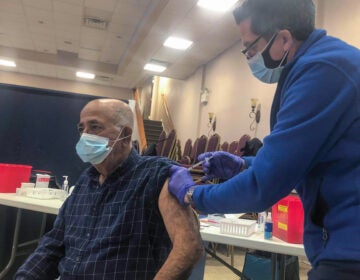

![CoronavirusPandemic_1024x512[1]](https://whyy.org/wp-content/uploads/2020/03/CoronavirusPandemic_1024x5121-300x150.jpg)
